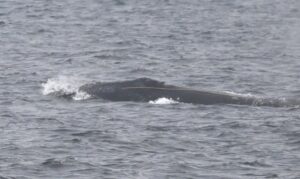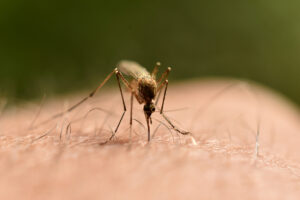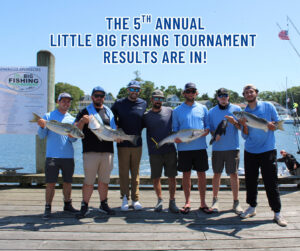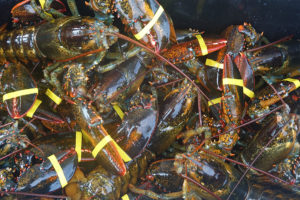
North Atlantic Right Whale Catalogue #4042, seen dragging fishing line in the Gulf of St. Lawrence on July 15, 2023. Photo Credit: Dalhousie University, taken under Canadian permits
BOSTON – Scientists are calling for stronger measures to protect North Atlantic Right Whales following reports of an entangled right whale in Canadian waters.
A research effort led by Dalhousie University spotted the entangled whale with fishing lines caught in its mouth and fresh wounds on its tail on July 15 in waters northwest of Prince Edward Island.
The New England Aquarium later confirmed the whale’s identity as whale Catalogue #4042, a 13-year-old male and son of “Ravine”.
This recent episode marks at least the fourth time this whale has suffered an entanglement and the fifth case of a right whale observed with attached fishing gear in 2023.
The incident has prompted calls for bolder measures such as the implementation of ropeless or “on-demand” fishing technology to protect the whales.
Despite the promise shown by the new technology, significant financial support is necessary to increase its manufacture, address gear conflict issues, and provide training and support for industry fishermen, highlighting an increased need for cooperation between the U.S. and Canada to protect critically endangered species threatened by current fishing methods.
“Right whales don’t recognizer international orders,” said Amy Knowlton, Senior Scientist with the New England Aquarium’s Cabot Center for Ocean Life.
“This crisis,” she said, “can only be solved if the United States and Canada work together and both take bolder action to implement stronger protection measures, including the broad adoption of ropeless fishing technology to help the fishing industry make a generational transformation to more sustainable practices.”
Research by NOAA indicates that out of 114 cases of mortality, 75 were related to entanglement, the effects of which extend beyond the whales they kill.
Studies have found reduced calving rates for female right whales who have survived an entanglement, as well as a heightened risk of mortality during pregnancy for pregnant right whales.
“Any delay in implementing broad-scale gear modifications, especially in the offshore waters where right whales and more dangerous gear overlap, jeopardizes the future of this species,” said Heather Pettis, Research Scientist with the Aquarium and executive administrator of the Ropeless Consortium.
“The more individuals we lose to entanglement injuries,” she said, “the less likely the species can continue to remain viable.”
By, Matthew Tomlinson, CapeCod.com NewsCenter
























